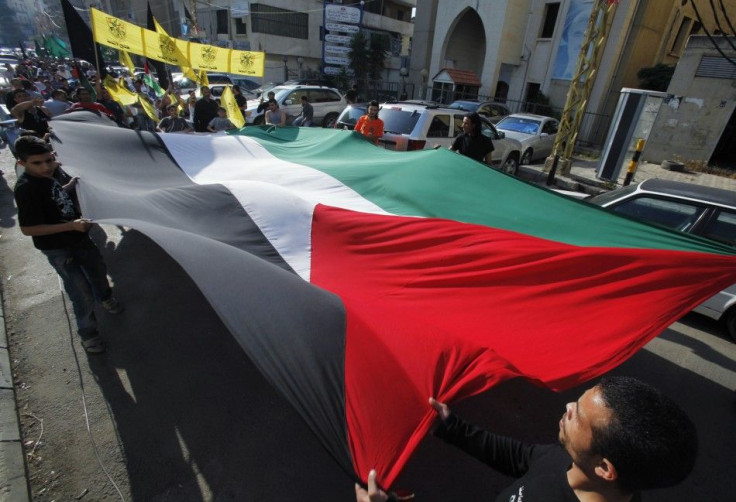'Nakba Day' Marks Displacement Of Palestinians After Israel's Birth

Thousands of Palestinians throughout the Middle East and the Arab world observed Nakba Day -- literally translated as the Day of Catastrophe -- on Tuesday to commemorate their mass displacement 64 years ago from lands that now constitute the State of Israel.
In the noncontiguous Palestinian territories of the West Bank and the Gaza Strip, Palestinians attended rallies and demonstrations, waving the national flag, a red triangle cutting into three horizontal bars of black, white and green from the left, for a state with no formal international recognition.
Nakba Day is a reminder of the contentious circumstances that surrounded Israel's founding and resulted in an exodus of hundreds of thousands of Palestinians, who fled from their homes in the heat of a bloody conflict between Jewish and Arab populations in what was then the British Mandate of Palestine prior to May 14, 1948, the day Israel established independence.
Over 5 million Palestinians and their families are estimated to be living as refugees in the Palestinian territories and surrounding countries, a reality that remains a sticking point in peace negotiations already hamstrung by a split in the governing bodies of the West Bank and the Gaza Strip.
In the West Bank, the President of the Palestinian National Authority, Mahmoud Abbas, focused demands in a Nakba Day speech on establishing a Palestinian state in the West Bank, the Gaza Strip and East Jerusalem, the latter being part of the territory annexed by Israel after the 1967 conflict known as the Six-Day War.
Delivering his speech in Ramallah, the PNA's seat of power, Abbas referred to that territory in addition to encroachments of Israeli settlements on the West Bank and military control over territorial borders, saying no matter how strong and aggressive, it [Israel] will be removed, the Associated Press reported.
While the PNA is formerly recognized by Israel as a governing body of the West Bank, the Gaza Strip has come under the control of the militant Islamic political party Hamas, which has called for the destruction of Israel and has subsequently been classified by Israel as a terrorist organization.
Hamas's Prime Minister Ismail Haniyeh, also speaking on Nakba Day, focused on returning Palestinian refugees and their families to their former homeland, an action that would eliminate the Israeli Jewish majority in Israel.
[O]ur message to the refugees is that we will not give up the right of return ... We will not accept any project that abandons the right of return or affects our sacred rights to the homeland, Haniyeh said, the AP reported.
Israeli Prime Minister Benjamin Netanyahu indicated his support for an independent Palestinian state in a recent letter to Abbas, though it was rejected by Palestinian authorities over its demands for an unconditional return to peace talks while rejecting a halt to Israeli settlements on the West Bank.
The content of [Netanyahu's] letter did not represent grounds for returning to negotiations, Hanan Ashrawi, a member of the Executive Committee of the Palestine Liberation Organization headed by Abbas, told Reuters after reviewing the document.
© Copyright IBTimes 2025. All rights reserved.





















